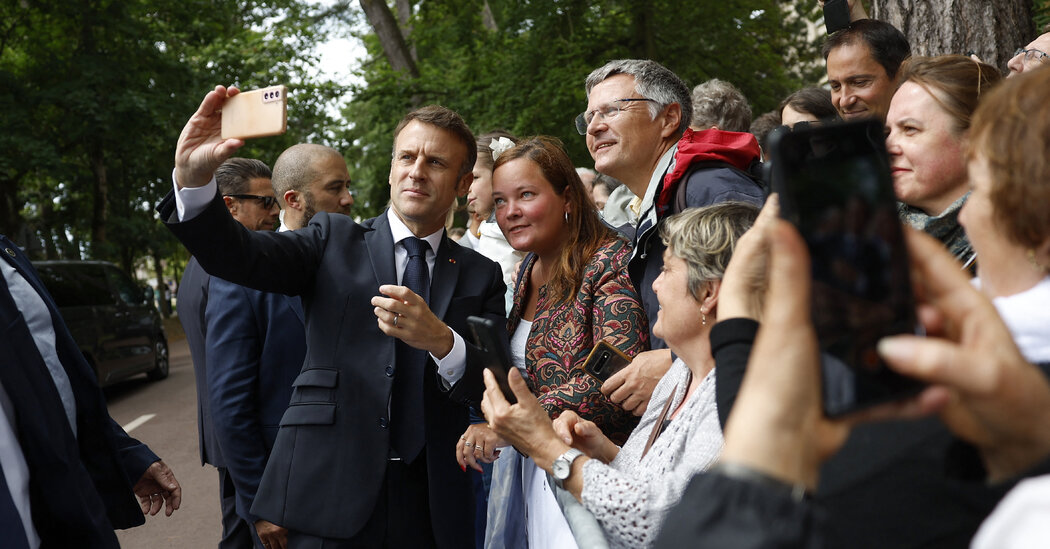When President Emmanuel Macron defended his decision last month to call snap legislative elections, he argued repeatedly that France needed a “clarification” of its political situation.
But on Monday, after the French cast their final ballots, the situation was anything but clear.
A nationwide vote for the 577 seats in the National Assembly, the country’s more powerful house of Parliament, has not produced a working majority. Instead, it has left unanswered the questions of who might be France’s next prime minister, who might form the country’s next government, and where the country is headed.
Here’s what you need to know about what comes next.
What are the results?
Three large blocs have emerged from the elections — none big enough to govern alone, all of them possibly too antagonistic to work together. None has reached the threshold for an absolute majority, 289 seats, which would enable them to form a government that could survive no-confidence votes by their rivals.
The New Popular Front, an alliance of left-wing parties including the Greens, the Communists, the Socialists and the hard-left France Unbowed party, came in first with about 180 seats in the National Assembly. Mr. Macron and his centrist allies came in second, with about 160 lawmakers, and the far-right, anti-immigration National Rally party and its allies trailed, with about 140 lawmakers.
The country’s two-round electoral system — an early vote and a runoff — usually produces absolute majorities dominated by a single party that is aligned with the president and forms the government. So Sunday’s result was unusual.
Coalition? Chaos? What happens next?
“It’s a jump into the unknown,” said Olivier Costa, a research professor at the Centre for Political Research at Sciences Po University in Paris.
One possibility raised before the election — when pollsters were predicting a much stronger showing for the far right — was a cohabitation. That happens when a rival party to the president’s wins an absolute majority. The president is then all but forced to pick a prime minister from that party or face the threat of successive no-confidence votes for his or her nominee.
While it is quite likely that Mr. Macron might have to appoint someone outside his party, none of his opponents have the majority to immediately force his hand.
New Popular Front leaders insist that because they came in first, Mr. Macron should appoint someone from their ranks as prime minister; that person would then name a cabinet. But the party and its allies are about 100 lawmakers short of the absolute majority needed to safely survive no-confidence votes by other parties in the current polarized political landscape.
It is very unlikely that Mr. Macron would pick someone from the far-right National Rally or the far-left France Unbowed, both parties that he has labeled “extremes” and that other political groups have flatly ruled out working with. He could try to reach out to parties within the New Popular Front that have some common ground with his centrist alliance, but those parties have shown little appetite for working with him.
Mr. Macron could theoretically appoint anyone — even someone who is not a lawmaker — as long as the person reflected a political consensus in the National Assembly. Some analysts and politicians have suggested the idea of a broad coalition that involves parties within the three main blocs that could agree on a prime minister and a limited political agenda.
But that is not so easy right now. “None of the political forces have much interest in working with one another, because France’s parties are mainly designed to groom presidential candidates,” Mr. Costa said, noting that many of Mr. Macron’s rivals and allies were already laying the groundwork for a presidential run in 2027, when Mr. Macron must step down.
One other possibility that has been floated is a nonpartisan cabinet of experts that would run the country while a coalition deal is hammered out, but that solution is very unfamiliar to the French.
Is the clock ticking?
Legally speaking, no. There is no deadline mandated by the Constitution to appoint a prime minister and form a government.
Gabriel Attal, Mr. Macron’s current prime minister, offered his resignation on Monday, as is customary after legislative elections. But Mr. Macron asked him to stay for the time being to ensure “stability,” the Élysée Palace said.
Mr. Attal might stay on at least to handle the business of running the country during the Paris Summer Olympics, which end Aug. 11.
But sustained gridlock will seriously hamper France’s ability to pass a budget in the fall and to enact any important legislation.
Could Mr. Macron get out of this morass by calling a new election? Not anytime soon. The Constitution dictates that the president has to wait at least a year after a snap election to call another one.
That means the newly elected National Assembly will be in place at least until then and lawmakers can file multiple no-confidence motions without worrying about a threat to send them back to the polls.
